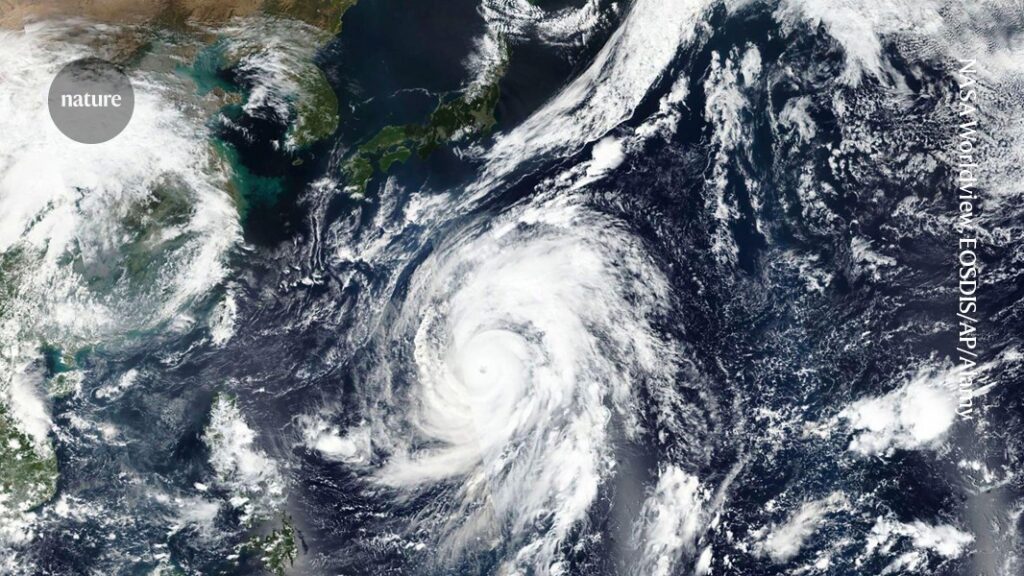

Typhoon Hagibis is approaching Japan in 2019. The storm was one of the events used to study the accuracy of an AI-based forecasting system.Credit: NASA Worldview, Earth Observing System Data and Information System (EOSDIS)/AP/Alamy
Google DeepMind has developed the first artificial intelligence (AI) model of its kind to predict the weather with more precision than the best system currently in use. The model generates forecasts up to 15 days ahead in minutes, instead of the hours required by current forecasting programs.
The purely AI system beats the world’s best operational medium-range model, the European Center for Medium-Range Weather Forecasts’ Ensemble Model (ENS), to predict extreme weather conditions such as hurricanes and heatwaves. This breakthrough could help pave the way for an era of AI-based weather forecasts faster and more reliable than current systemssay the researchers. The system, called GenCast, is described today in Nature1.
Microsoft’s lightning-fast AI is the first to predict air pollution around the world
Conventional forecasts, including those of the ENS, are based on mathematical models that simulate the laws of physics governing the Earth’s atmosphere. They use supercomputers to process data from satellites and weather stations. – a process that takes hours and enormous amounts of computing power.
GenCast, on the other hand, was trained solely on historical weather data, allowing the system to establish complex relationships between variables such as air pressure, humidity, temperature and wind. This helps it outperform strictly physics-based systems, says Ilan Price, a research scientist at Google DeepMind in London and author of the paper.
“We’ve really made dramatic progress in catching up and now surpassing (physics-based models) with machine learning,” Price says.
Rise of AI
AI-based weather forecasting has advanced rapidlywith several companies racing to develop new and better models. Among them are Huawei2 in Shenzhen, China, and Nvidia in Santa Clara, California. Earlier this year, Google released NeuralGCM3, a hybrid system that combines physics-based models with AI produce short- and long-term forecasts comparable to conventional models.



